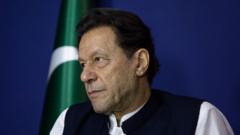Zimbabwe's government has instituted an immediate ban on police officers using personal mobile phones while on duty, aligning with efforts to mitigate corruption and improve law enforcement practices.
Zimbabwe Enforces Mobile Phone Ban for Police Officers

Zimbabwe Enforces Mobile Phone Ban for Police Officers
Police must now use only official communication devices to enhance integrity and accountability.
In a surprising move aimed at enhancing police integrity, the Zimbabwean government has enacted a ban on the use of personal mobile phones by police officers during their shifts. According to an internal memorandum, officers must surrender their cell phones to their supervisors upon reporting for duty, retrieving them only during designated break times.
While the memo does not explicitly state the rationale behind the ban, sources suggest it is connected to recent incidents of police corruption. Just days prior, two traffic officers were apprehended after being caught soliciting bribes in a viral video, a situation that has intensified public scrutiny of police conduct.
Police spokesperson Paul Nyathi condemned the actions of the arrested officers, labeling them as “bad apples” not worthy of serving the community. This new prohibition appears to reinforce previous guidelines that had reportedly gone unenforced, emphasizing the necessity of using only official walkie-talkies for communications during work hours.
The circular released to police officials reiterated that "no member is allowed to be in possession of a cell phone whilst on duty," insisting compliance from commanders at all levels. The memo also includes warnings that failing to enforce the ban could lead to disciplinary actions against supervisory officers.
Corruption within the police force is a pressing concern in Zimbabwe, often attributed to low salaries and unfavorable working conditions. As part of the government's ongoing efforts to restore public trust in law enforcement, this new policy aligns with broader initiatives aimed at increasing accountability among officers. The recent actions reflect an urgency to address long-standing issues plaguing the institution, with the public and government alike watching for the implementation of meaningful reform.

















